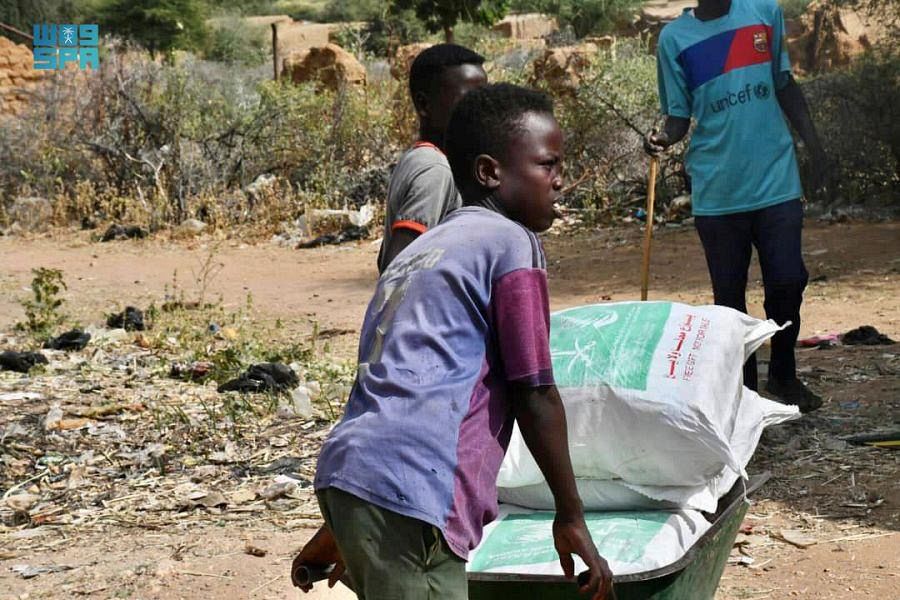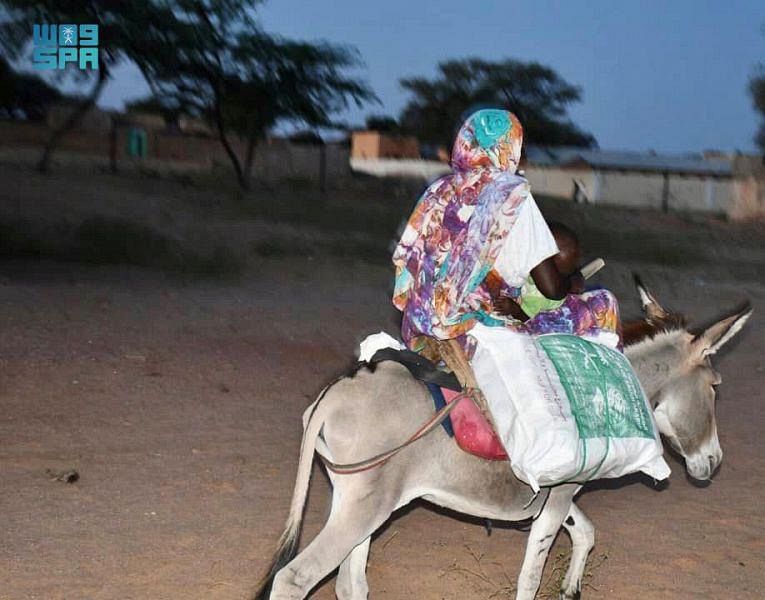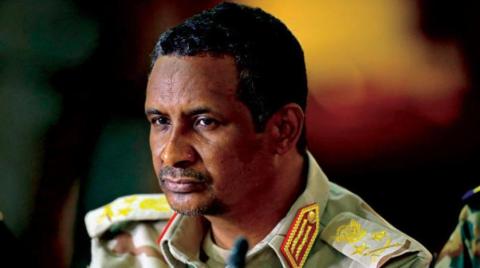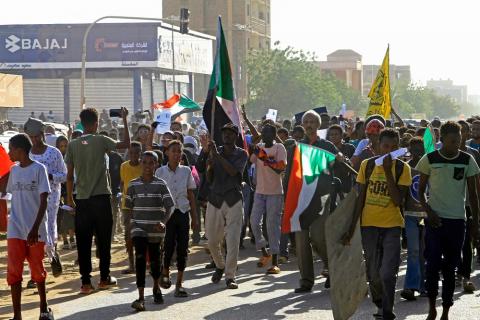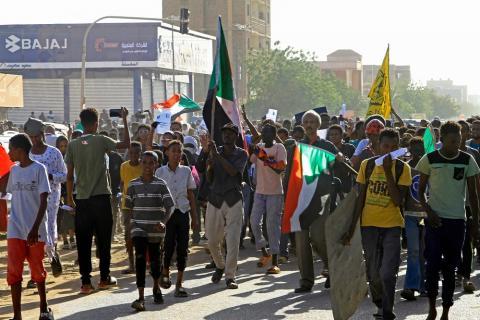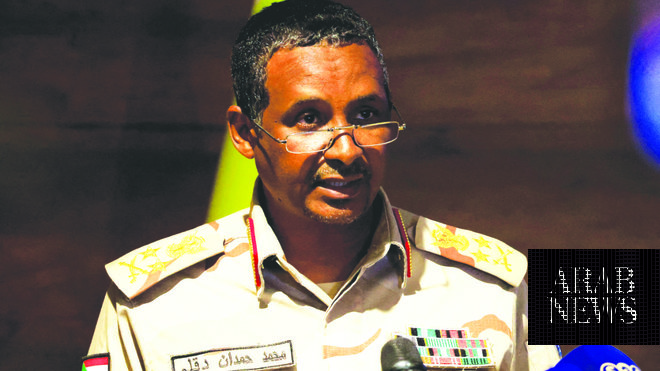
General has played a key role in his country’s turbulent politics for 10 years
KHARTOUM: Sudan’s Gen. Mohamed Hamdan Dagalo, known as Hemedti, rose from lowly beginnings to head a widely feared Arab militia that crushed a revolt in Darfur, winning him influence and eventually a role as the country’s second most powerful man, and one of its richest.
On Saturday, fighting erupted between his Rapid Support Forces, which were militias in Darfur before they became a paramilitary force, and the military.
Hemedti has played a prominent role in his country’s turbulent politics for 10 years, helping topple his one-time benefactor President Omar Bashir in 2019 and later quashing protests by Sudanese seeking democracy.
As deputy head of state, Hemedti, a former camel trader with little formal education, has taken on some of Sudan’s most important portfolios in the post-Bashir era, including the crumbling economy and peace negotiations with rebel groups.
HIGHLIGHT
Sudan’s army warned this week of a risk of confrontation after mobilizations by Hemedti’s paramilitary group, underlining growing friction between the rival forces.
Much of his power is derived from his RSF paramilitary — menacing young men armed with rocket-propelled grenades and machine guns mounted on trucks — who mastered desert warfare in the Darfur region but lack the discipline of the regular army.
Hemedti first took up arms in the western Darfur region after men who attacked his trade convoy killed about 60 people from his family and looted camels, according to Muhammad Saad, a former assistant to Hemedti. Conflict had spread in Darfur from 2003 after mostly non-Arab rebels rose up against Khartoum.
A tall imposing figure, Hemedti went on to form a pro-government militia from nomadic Arab tribesmen, locally known as janjaweed, which he later transformed into the more diverse RSF.
The International Criminal Court charged Bashir and other top officials with genocide and crimes against humanity in Darfur, which began in 2003 and where as many as 300,000 people were killed and 2.7 million were displaced. No charges were brought against Hemedti.
When Bashir wanted protection from rivals during his 30-year rule, he chose Hemedti as his enforcer, insiders said. Impressed by Hemedti’s cunning and fighting skills, Bashir leaned on him to deal with enemies of the state in the Darfur conflict and elsewhere in Sudan.
Hemedti’s militia was legitimized. He won the rank of lieutenant-general and had free rein to seize gold mines in Darfur and sell Sudan’s most valuable resource. As Sudan limped from one economic crisis to another, Hemedti became wealthy.
“I’m not the first man to have gold mines. It’s true, we have gold mines and there’s nothing preventing us from working in gold,” Hemedti said in a BBC interview.
After years of supporting Bashir, Hemedti took part in the ousting in 2019 of his longtime ally, who had faced pressure from mass protests calling for democracy and an end to economic woes.
Under a civilian-military partnership set up after Bashir’s removal, Hemedti wasted no time in trying to shape the future of Sudan, which has been ruled for most of its post-colonial history by military leaders who seized power in takeovers. He spoke in public about the need for “real democracy,” met Western ambassadors and held talks with rebel groups.
“Hemedti planned on becoming the No. 1 man in Sudan. He has unlimited ambition,” said an opposition figure who asked not to be named for fear of reprisals.
Hemedti showed little tolerance for dissent. The RSF launched a bloody crackdown on a protest camp in 2019 outside the Ministry of Defense after Bashir’s ousting, witnesses said. More than 100 people were killed. Hemedti denied ordering the assault.
The military in October 2021 seized power and declared a state of emergency, ending the civilian-military power-sharing deal in a move decried by political groups as a military coup.
In a video statement, Hemedti said that the army seized power to “correct the course of the people’s revolution” and achieve stability.
Hemedti has said the military is prepared to hand over power in case of an agreement or elections. Many Sudanese were not convinced.
But divisions between Hemedti’s RSF and the army have complicated efforts to restore civilian rule.
“I have long believed that he (Hemedti) is an existential threat not only to Sudan’s democratic transition but to its very viability as a state,” said Ahmed T. El-Gaili a Sudanese lawyer.




